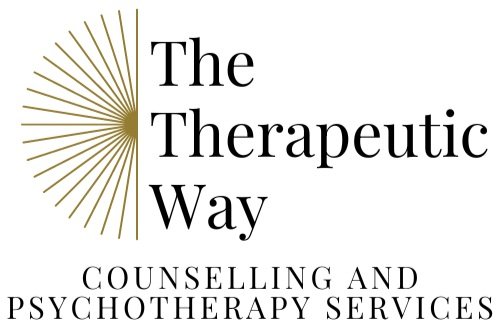
Therapy for Family Estrangements and Family Trauma
Restoring connections, Healing Family Wounds
Therapy for Family Estrangement and Family Trauma
Support for family estrangement and family trauma. We provide a compassionate and holistic approach to help individuals, couples, and families navigate the complexities of estranged or strained relationships. As an adult child and parent, learn to process the grief, sadness, and anger tied to family disconnection, challenge feelings of guilt and self-doubt, manage emotional distress, build resilience, and create meaningful changes in your relationships and life.
You are not alone ♡
Have you been estranged from your family member? Are you looking to reunite and your family member, and wondering if that is actually possible?
Family trauma can take many forms, from growing up in a household marked by emotional neglect or abuse to navigating the aftermath of betrayal, loss, or unresolved conflict. These experiences often leave lasting scars, shaping the way you relate to others, view yourself, and handle challenges. At The Therapeutic Way, we provide a safe, nonjudgmental space to explore and process these painful experiences. Through therapy, you can begin to:
Recognize and heal from the impact of unresolved family dynamics.
Address feelings of guilt, anger, or shame.
Develop healthy boundaries and coping mechanisms.
Foster emotional resilience and self-compassion.
Support for Family Estrangement and Reconnection
Estrangement from family members can be a deeply painful and isolating experience. Whether the distance is due to unresolved conflict, differing values, or protective boundaries, it often comes with feelings of grief, sadness, and confusion. Our therapy services are designed to help you:
Process the complex emotions tied to estrangement.
Gain clarity on your needs and boundaries.
Challenge self-doubt and rebuild your confidence.
Find peace and purpose in your life, whether or not reconciliation is an option.
For those seeking to reconnect with estranged family members, reconnection can be a delicate and emotional process. Our therapists in Burlington guide you through this journey, offering tools and strategies to rebuild trust and create healthy communication. Reunification therapy focuses on:
Understanding the reasons for past conflicts or estrangement.
Navigating the emotions of both parties with compassion.
Building trust and establishing clear, respectful boundaries.
Creating a shared path forward that honors everyone’s needs.
THE THERAPEUTIC WAY
How We Can Help You Heal Your Family Unit?
Have a safe space to communicate and talk to each other with a neutral person in the room (in family therapy)
Have a safe space to communicate your vulnerabilities, love for each other, and missing of each other.
Manage emotional distress, grief, and sadness, related to relationship fallout
Coping techniques to manage triggers
Reducing negative thinking, overthinking, worrying, and negative thoughts
Explore topics of forgiveness, taking responsibility, and moving forward
Being able to set boundaries, communicate assertively, and stop you from feeling like everything is your fault
Letting go of unrealistic expectations, fantasies, and false hope.
Therapy for Family Trauma and Family Estrangement at The Therapeutic Way
Our therapy clinic in Burlington, Ontario, is dedicated to helping adults heal from family-related struggles with care and expertise. We understand the nuances of family trauma, estrangement, and reunification, and our approach is tailored to meet your unique needs. With both in-person and online therapy options, we make it easy to access support no matter where you are in Ontario.
By the third session, you will begin to identify and understand the emotional patterns and triggers tied to your family dynamics. This includes exploring the roots of estrangement or conflict and learning initial tools to manage emotional distress.
By the sixth session, you will have started implementing strategies to improve communication, build self-awareness, and establish healthy boundaries. This is also a time to process grief and begin fostering resilience in the face of family challenges.
By the twelfth session, you will notice significant progress in emotional healing and clarity. For reunification, this may include establishing trust and respectful communication with family members, or finding peace and closure if reconciliation isn’t possible.
Healing from family trauma or navigating estrangement doesn’t have to be a journey you face alone.
Reach out to us today to book a consultation and begin your journey toward healing, growth, and healthier family connections. Our Burlington-based therapists are here to help you find clarity and peace.
THE THERAPEUTIC WAY TEAM
Therapists Specializing in Family Therapy.
Syeda Zaidi
*Individual, Couples, and Family Therapist
Krista MacKenzie
*Individual, Couples, and Family Therapist
Vidhi Joshi
*Individual, Couples, and Family Therapist
Anumeet Sandhu
*Individual Therapist
THE THERAPEUTIC WAY
Frequently Asked Questions
-
The length of therapy varies depending on the specific issues, the number of family members involved, and each person's willingness to engage in the process. It may take several sessions or months of therapy to address the underlying issues, improve communication, and see positive changes. Your therapist will work with you to set realistic goals and timelines for progress.
-
Common issues include unresolved conflict, trauma, boundary setting, emotional neglect, codependency, and generational differences. Therapy can also address feelings of guilt, grief, anger, and loss associated with estrangement.
-
If one or more family members are unwilling to participate, therapy can still be helpful for the individual or individuals who are seeking support. Individual therapy can provide valuable insights into the estrangement and offer strategies for coping, setting boundaries, and navigating difficult family dynamics.
-
Reconciliation is not always the goal of therapy. The focus is on helping individuals heal from the emotional pain of estrangement, develop healthy coping strategies, and find peace within themselves, regardless of the outcome with the estranged family member(s).
If you are looking to reconcile, we will help you with that too. If you are looking for move forward without a family member in your life, we will help with that also. We will help you make the decision if needed.
-
Yes, family estrangement therapy can be done online, and many clients find it a convenient option. Online therapy offers flexibility and accessibility, allowing family members to participate from different locations. Sessions are conducted via secure video conferencing platforms, ensuring privacy and confidentiality.
We are here to support you every step of the way.
We offer a 20 mins free consultation so we can discuss how therapy can help you.
FAQs
Please reach us at info@thetherapeuticway.ca if you cannot find an answer to your question.
-
Fees
Individual therapy: 50 mins, 75 mins, 90 mins: $150- $180
Couples therapy: 50 mins, 75 mins, 90 mins: $180- $250
Family therapy: 50 mins, 75 mins, 90 mins: $180- $250
Each therapist set their own fees based on their level of experience. Check out their profile for a detailed breakdown of their fees.
Sliding scale fee is set differently by each therapist
Cancellation fee is charged as follows:
Less than 24 hours before the appointment: 50% of session rate
No-show appointment: 100% of session rate
In case of illness or emergency, one time exemption and thereafter we require 24 hours notice
Arriving beyond 20 minutes late will require a re-scheduling of your appointment.
-
Yes, we do.
It is recommended that you reach out to your insurance provider before our session to confirm whether your services are covered by a registered psychotherapist and eligible for reimbursement.
After our session, you will be provided with a receipt that includes all the information required to submit to your insurer for reimbursement. If you have not been reimbursed, remember to keep your receipts to claim for tax deductions as medical expenses on your personal income tax filing.
-
The type of therapy that is best for you, depends on you as a person and the reason you are seeking therapy. There are different types of therapy, such as somatic-based therapy, cognitive behavioural therapy, trauma-informed therapies, holistic therapy, existential therapy, and more. The type of therapy that is right for you will depend what you are looking for. While you may have an input in this, majority of the time the therapist will know what is best suited for you and will let you know.
At The Therapeutic Way, we work with clients using an integrative approach to therapy, meaning using different modalities to suit your needs. We use a trauma-informed, holistic, and relational approach to working with you. Click here to learn more.
-
The difference between psychotherapist, psychologist, and psychiatrist, depends on education and scope of practice.
Psychotherapist, psychologist, and psychiatrist can provide therapy called talk therapy.
A psychotherapist can provide therapy under the College of Registered Psychotherapist of Ontario, a psychologist can provide therapy under the College of Psychologists of Ontario, and a psychiatrist can provide therapy under College of Physicians and Surgeons of Ontario.
Difference:
Psychotherapist Education: Master’s Degree or higher
Psychologist Education: PhD or PsyD.
Psychiatrist: MD
————
Psychotherapist: Can’t diagnose
Psychologist: Can do assessment and diagnose
Psychiatrist: Can do assessment, diagnose, and prescribe medication
————
Psychotherapist Training: Counselling and focus on therapy techniques
Psychologist: Focus on clinical research and assessment
Psychiatrist: Use medical treatment such as prescribing medications for mental health conditions
Before seeking help, it’s important to know what you need and are seeking. A consultation call can help you decide.
At The Therapeutic Way, we are registered psychotherapists with the College of Registered Psychotherapist of Ontario.
-
The term psychotherapy and counselling are often used interchangeably with some slight differences. Psychotherapy refers to the treatment based for psychological disorders and mental health issues, such as depression, anxiety, PTSD, etc. Counselling refers to wellness support and providing insights and clarity which leads to growth or personal betterment.
At The Therapeutic Way, we provide both psychotherapy and counselling.
-
Online therapy is as effective as in person therapy. What is most important with any format of therapy is the strong therapeutic relationship between you and your therapist. Online therapy is a good option when coming in-person is not feasible, when you have dependents at home, and it is also more convenient.
At The Therapeutic Way, we offer online therapy and therapy by phone from the convenience of your home. Click here to learn more about our online therapy.





